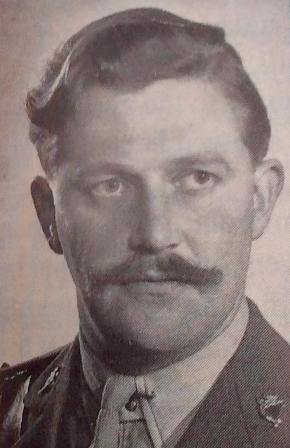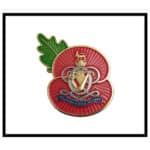Every so often, Regiments have the good fortune to produce or in our case, inherit someone of a legendary character, imposing presence and a range of soldierly qualities admired with affection by all ranks alike. Such was John Hurst.
John was selected for officer training at Mons OTCU and destined for the cavalry. On commissioning, he joined the 8th Hussars and arrived in Tidworth in mid-1950 which coincided with the mobilisation for Korea.
He was appointed RHQ Troop Leader as he had not received any formal Tank training. On arrival in November 1950 at Pusan and after marrying up with the new Centurion tanks, the competition was intense amongst the Squadrons on who would move north first. ‘A’ Squadron won, with RHQ Troop attached for the long rail journey north.
Arrival at Pyongyang coincided with the news that the Chinese had entered the war and the whole UN 8th Army was in withdrawal covered by the British 29 Brigade.
‘A’ Squadron and RHQ Troop with its new Troop Leader would have a baptism of fire covering the withdrawal to the 38th parallel.
By April 1951 the Brigade was back on the 38th parallel over-watching the crossings on the River Imjin. John had moved from RHQ to C Squadron and held the appointment of 4th Troop Leader with Bill Holberton as his Sergeant.
The Squadron moved up the line on the 22nd and conducted a relief in place with ‘B’ Squadron harbouring up for the evening in Brigade reserve which allowed the English members to prepare for St George’s Day, little did they know what lay ahead of them that night.
Battle duly commenced on the 23rd of April with countless hordes of Chinese swarming across the river. The Glosters and Northumberland Fusiliers bore the brunt and it fell on ‘C’ Squadron to advance up a narrow track to attempt to relieve the infantry.
A fierce engagement followed in which John’s Troop Sergeant, Bill Holberton’s tank would be knocked out with the surviving crew taken prisoner. The remainder of the Troop kept the enemy at bay until their ammunition was exhausted. Miraculously they managed to withdraw along with what was left of the Fusiliers. The Imjin was described as the fiercest battle since WW2 and John’s leadership as part of it was exemplary.
He returned with the Regiment to Luneburg in early 1952 and was appointed Adjutant in 1955 to his old Squadron Leader Lt Col Henry Huth.
John decided to leave the Regiment in 1957 and passed away on the 11th November 1998.



